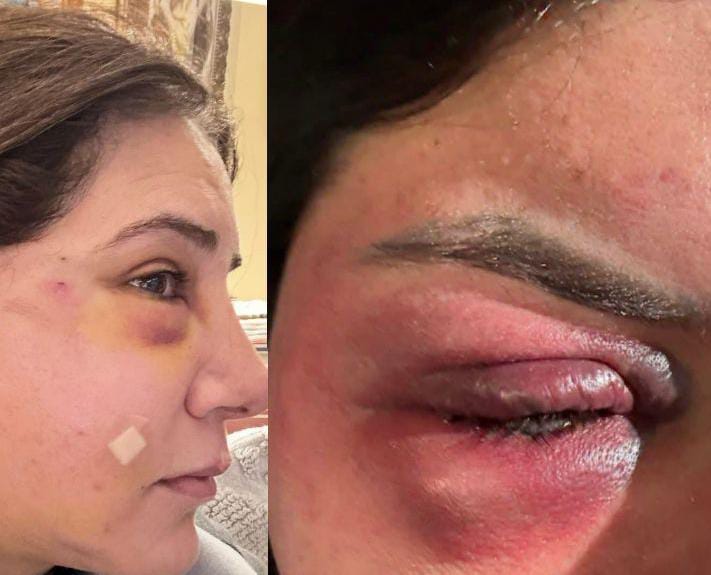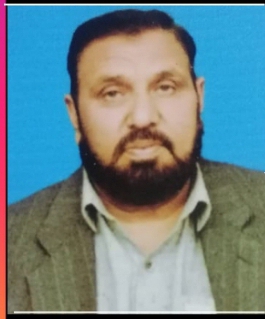The Silent War Against Women in Pakistan: The Case of Jasmine Manzoor and Beyond
By Javaria Tareen
It is both heartbreaking and enraging to witness the suffering of brave women like Jasmine Manzoor — a renowned journalist, a bold voice, and a symbol of resilience. Recently, images surfaced showing Jasmine as the victim of domestic abuse. They sent shockwaves through the nation, igniting outrage but also a sense of helplessness among those who’ve watched the same story repeat itself again and again in Pakistan: a strong woman, broken by a weak man, and a system that does little to protect her.
A Crisis That Goes Beyond One Woman
Jasmine’s case is not isolated. Every year, thousands of women in Pakistan are subjected to physical, emotional, and psychological abuse, often at the hands of those closest to them — their husbands, in-laws, or relatives. According to the Human Rights Commission of Pakistan (HRCP), over 5,000 women are killed annually in so-called “honor killings”, while over 90% of married women in Pakistan have experienced some form of domestic abuse in their lifetime, ranging from verbal insults to severe physical violence.
What’s even more horrifying is that the vast majority of these cases go unreported. Victims are silenced by family pressure, societal norms, fear of further violence, or the utter lack of faith in law enforcement. In Pakistan, seeking justice is often a punishment in itself — a woman who dares to speak up can lose her home, her children, her dignity, and sometimes even her life.
The Failure of Law and Protection Mechanisms
Pakistan has made some legal progress on paper, such as the Domestic Violence (Prevention and Protection) Act, passed in several provinces. But implementation remains a major failure. Shelters are overcrowded or unsafe, police officers often dismiss abuse complaints as “private matters,” and legal processes are painfully slow and hostile toward women.
Even more alarming is the fact that Pakistan has seen an increase in state-backed misogyny in recent years, where public discourse subtly — or blatantly — shifts blame to women. This cultural environment not only emboldens abusers but isolates victims.
Despite the presence of women in key roles — in parliament, the judiciary, and even in the police — we have yet to see a collective, bold, and unapologetic stance from those in power. Their silence, or lack of action, speaks volumes.
Jasmine Manzoor: A Mirror to a Nation’s Hypocrisy
Jasmine Manzoor’s case should have sparked an immediate response at every level — political, legal, and social. Instead, she joins the long list of women who had to suffer quietly, until images and bruises spoke on their behalf. The public support for her is heartening, but it’s not enough.
Jasmine represents countless other women whose names we will never know — women who were silenced in rural homes, locked behind city walls, or buried under the weight of “family honor.”
What Needs to Change
1. Immediate Reform of Law Enforcement: Police must be sensitized and held accountable for how they respond to women’s complaints. Zero tolerance for negligence or complicity.
2. Strengthening Women’s Shelters and Legal Aid: Safe, confidential, and well-funded support systems must be available in every district.
3. Fast-Track Courts for Gender-Based Violence: Justice delayed is justice denied. Special courts must be created to handle domestic and gender-based violence.
4. Public Education and Cultural Change: Abuse must no longer be normalized. We need national campaigns in schools, media, and workplaces to reshape how society views gender roles.
5. Accountability for Abusers — No Exceptions: No matter how powerful or connected, abusers must face the full weight of the law.
A Call for Unity
Now more than ever, we must stand united for every woman who has suffered in silence. Jasmine Manzoor’s strength should not be her burden to carry alone. It must become our collective fight — not just for her justice, but for the safety, dignity, and freedom of every woman in Pakistan.
If we cannot protect the strongest among us, what hope is left for the most vulnerable?




